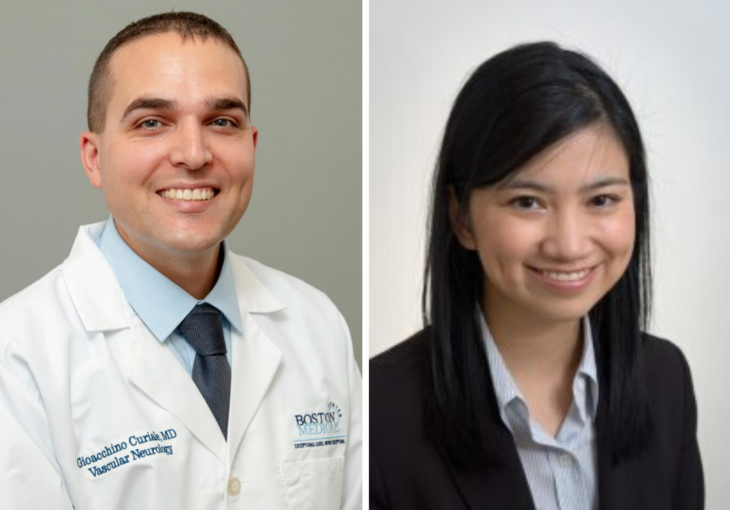From the front lines of the coronavirus pandemic in Boston, stroke experts Dr. Gioacchino Curiale and Dr. Thanh Nguyen have witnessed the power of partnership.
“Whether it is a parent homeschooling their child, an EMT responding to a 911 call, a nurse caring for patients at the bedside, or someone observing the social distancing guidelines, everyone has a role to play in defeating this virus,” said Curiale, chief and medical director of Stroke Services at Boston Medical Center and co-chair of the American Heart Association’s Mission: Lifeline Stroke statewide initiative.
As New England’s largest safety net hospital, Boston Medical Center has an extensive COVID-19 caseload, and collaboration is key to mitigating spread and managing patient care. Among the most vulnerable patients are those with a history of and risk factors for stroke. Though researchers are still investigating how COVID-19 impacts the brain, many patients with the virus have an abnormally increased tendency toward blood clotting, which can lead to severe complications.
“We have changed our acute stroke and interventional protocols to screen for COVID-19 for every patient, and protect our patients and ourselves accordingly,” said Nguyen, the hospital’s director of interventional neuroradiology and interventional neurology. “We maintain neurology clinic access for patients in need of urgent evaluation to offload the emergency room.”
Nguyen recently led the Society of Vascular & Interventional Neurology guidance statement on stroke intervention changes amid the COVID-19 pandemic, published in the American Heart Association journal, Stroke.
When the pandemic hit Boston, Boston Medical Center quickly mobilized to redesign workflows, reassign doctors and set up special clinics — even re-opening its East Newton Pavilion last month to accommodate homeless patients.
“Our hospital and department leadership moved early and effectively to ensure the availability of personal protective equipment, including n95 respirators,” Curiale said.
BMC is also addressing the decline in stroke patient admissions during the pandemic — a phenomenon attributed to fear of contracting COVID-19.
“I talk with my patients about signs and symptoms of stroke and the importance of seeking immediate medical attention,” Curiale said.
He credits the Association with helping to connect stroke neurologists across New England to share best practices and ensure continued access to high-quality stroke care.
“This experience has made me more grateful for all the systems, the technologies and, most importantly, the amazing people who make great stroke care possible.”
This post originally appeared in News from the Heart, an email newsletter by American Heart Association CEO Nancy Brown.
